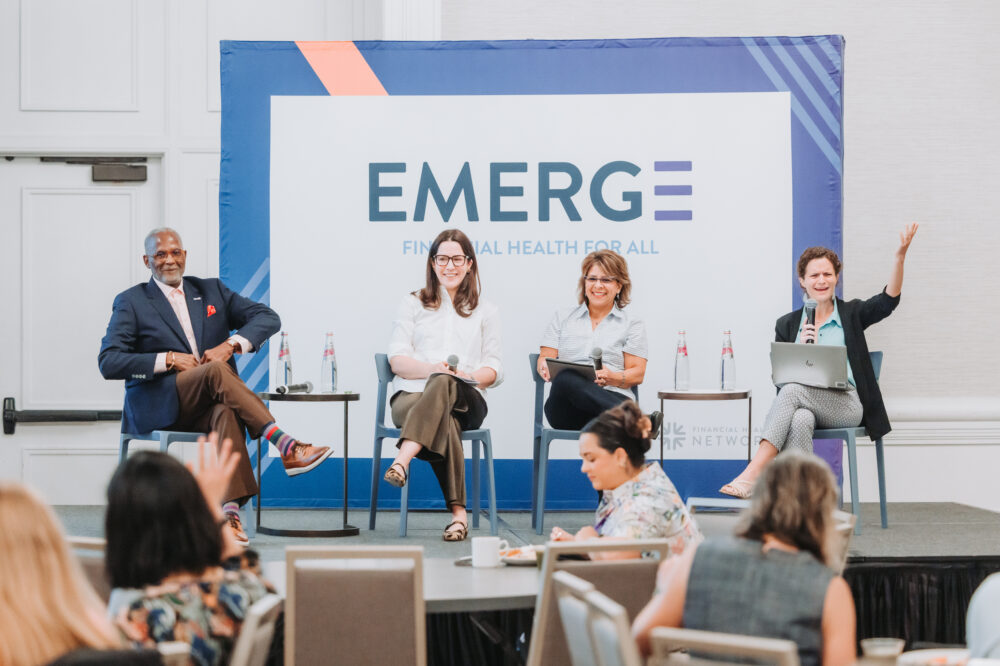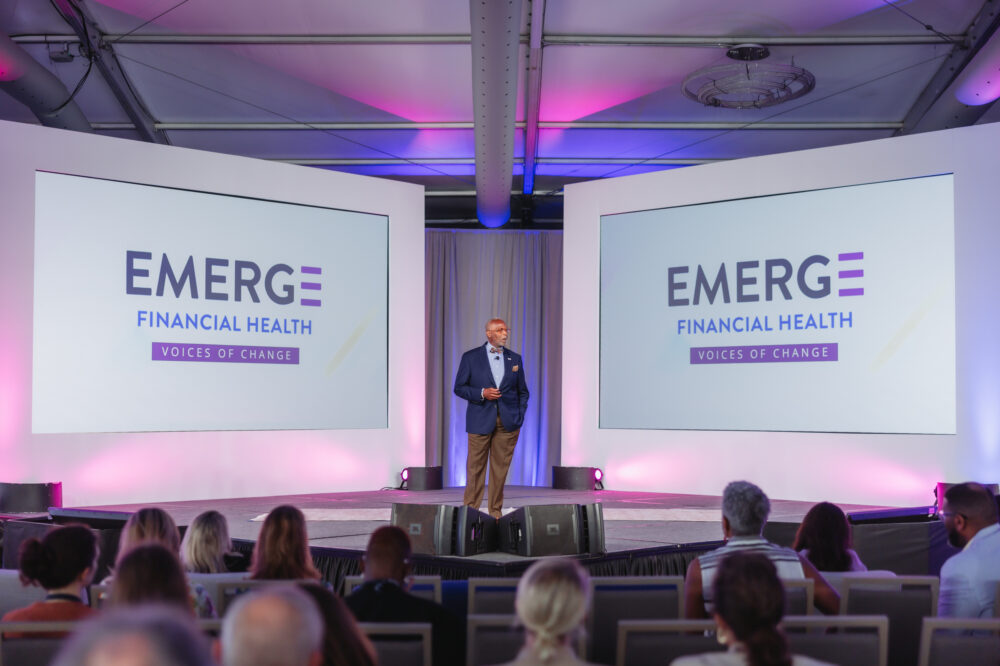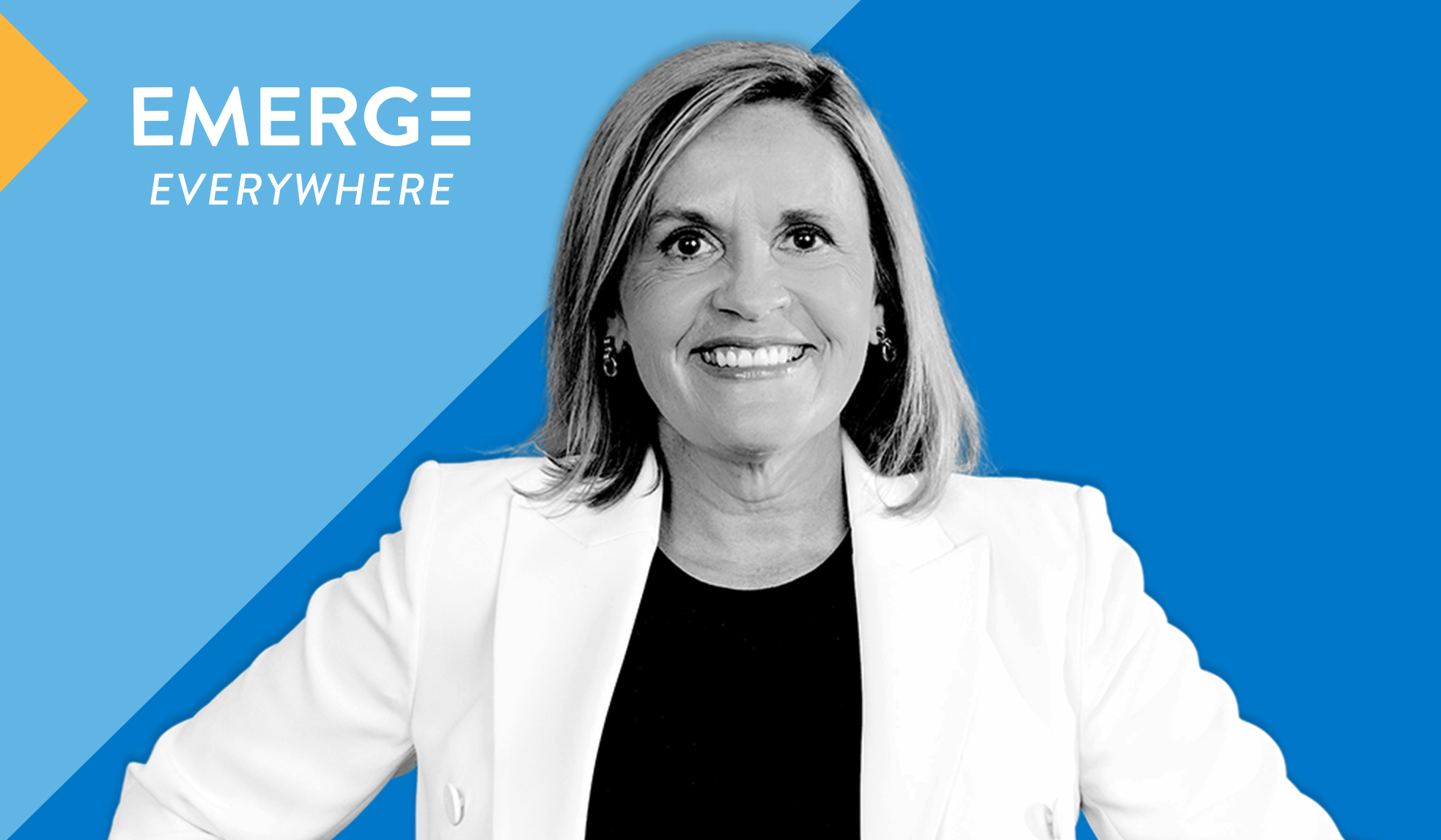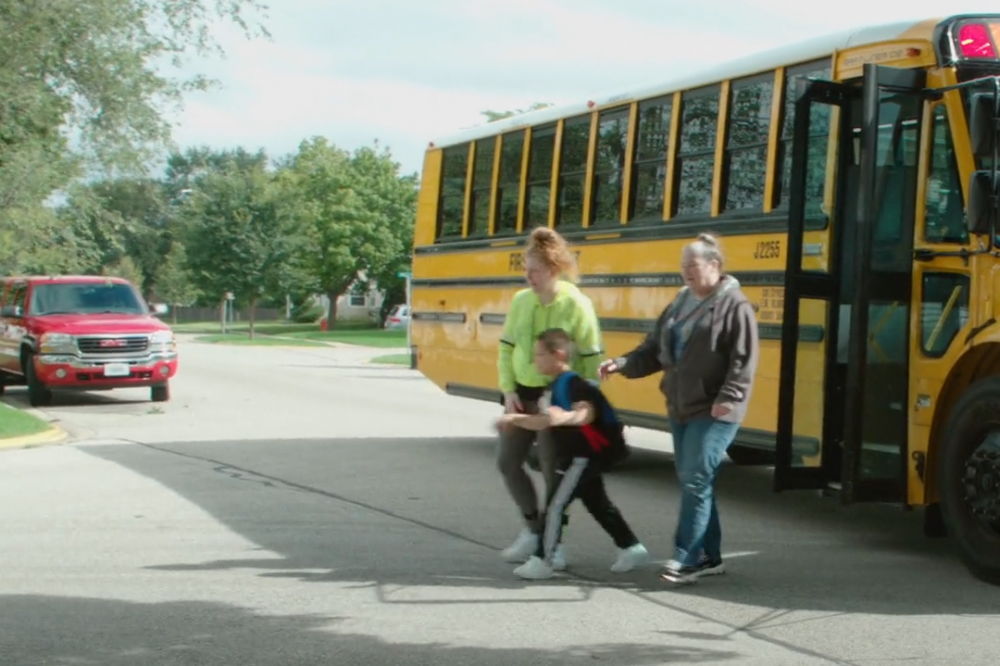Building with Wisdom: Why Centering Black Elders Is Key to Financial Innovation
In an exclusive post-EMERGE Q&A, Raymond A. Jetson of Aging While Black shares how honoring Black elders can transform financial futures across America.
Incomplete, Not Obsolete: A 401(k) Toolkit To Help Solve America’s Retirement Crisis
As the first generation to rely on 401(k)s nears retirement, large swaths of Americans don’t have enough saved. Was the “do-it-yourself” approach to retirement savings a mistake?
Prolonged Parenting in an Era of Extended Longevity
Longer lifespans are changing the very timelines at the heart of long-term household financial planning. Explore the dynamics of “prolonged parenting” using new data and insights to meet the needs of modern intergenerational financial health.
Community Perspectives: Aging as a Force for Community Transformation
A social enterprise innovator, former Louisiana state legislator, and proud Black elder advocate shares compelling lessons on the importance of elder representation for community transformation.
Wall Street to Main Street: Who Accesses Non-Retirement Investment Accounts?
A new FinHealth Spend Product Spotlight reveals disparities in ownership of these wealth-building tools.
What We Can Learn About Wealth Disparities in a Moment of Unprecedented Intergenerational Wealth Transfer
Article #3 in the Series | In the decades ahead, the country is on the precipice of a significant shift in wealth and assets between generations as America’s population ages.
Guardian: Empowering Retirees’ Financial Confidence With Insurance Benefits
Amidst a “silver tsunami,” many retirees face a gap in their insurance. Learn how Guardian is empowering retirees to take charge of their financial well-being.
The Future of Work: Adapting to Technological Change and Its Impact on Older Workers
Article #2 in the Series | Older workers are particularly vulnerable to being affected by technological advancements. How can employers help them remain competitive in the workforce?
Prolonged Parenting in an Era of Extended Longevity
Article #1 in the Series | As lifespans evolve, parents’ involvement in their adult children’s lives is changing. Explore the implications of “prolonged parenting” and the shifting financial needs of parents.
Assessing the Fintech Market Against Age-Inclusive Standards
Low- to moderate-income older adults face unique financial challenges. How well are current fintech solutions meeting them?
A Nonprofit’s Toolkit for Exploring Age-Inclusive Fintech Partnerships
Learn how to identify and assess fintech solutions that support the financial well-being of your older adult clients.
In Their Words: What Older Adults Struggling Financially Need
Despite the recent stimulus, increased vaccinations, and gathering momentum of reopenings across the country, millions are still struggling with their financial health. Ongoing economic uncertainty, job loss, and physical health concerns have caused many to shift financial priorities just to stay afloat. In the Financial Health Network’s latest…
Designing Digital Financial Advisory Tools for Low-to-Moderate Income Older Adults
Most low-to-moderate income (LMI) older adults are financially challenged to reach retirement and maintain their quality of life as they age. This report showcases research insights and design features that financial service providers can leverage to better support the needs of this group as they approach retirement, produced in partnership with the Institute of Consumer Money Management.
Lisa Marsh Ryerson: Problem-Solving through Partnership
AARP Foundation President Lisa Marsh Ryerson joins Jennifer to talk about the importance of partnerships to address the financial health needs of people as they age. In the midst of a global pandemic that is having an outsized impact on older people, forging these partnerships is more critical than ever. Listen in as they discuss the financial health, physical health, and racial disparities affecting older Americans, and how an integrated financial health ecosystem is key to finding solutions.
Health-Wealth Connections: The Impact of Medical Shocks and Family Caregiving on Older Adults
Now more than ever, older adults are at greater risk of medical emergencies. Yet many are also caretakers for family members – making them even more susceptible to medical financial shocks.
Financial Lives Episode 3: The Caregiver Conundrum
Chronic healthcare issues are not only challenging for the people diagnosed, but for the loved ones taking care of them. These emotional and financial challenges grow exponentially when medical coverage and healthcare-related debt enter the picture. This episode takes you inside the lives of three families experiencing the challenges of caregiving and attempting to navigate countless financial roadblocks as they plan for an uncertain future.
The Complexities of Caregiving: Financial Health and the Aging Crisis
Research overwhelmingly shows that health shocks can have dramatic and long-term implications for financial health. This is especially true for the elderly. Among all the statistics, it is clear that there will be more elderly people dependent on fewer younger people with an ever-increasing list of challenges, making financial health for all less attainable.
Financial Lives After 50: Rethinking the Golden Years
Discover key insights about the financial challenges and choices facing low- to moderate-income people ages 50 and over.
Webinar: Fintech for the 50+: How to Design for Low- to Moderate-Income Older Adults
Learn about adoption barriers and design recommendations for fintech users ages 50 and over, with insights from AARP Foundation and the Champlain Housing Trust.
Fintech Over 50: Designing for Low- to Moderate-Income Older Adults
Despite their widespread use of technology, many adults 50 and older find it challenging to handle day-to-day financial needs online. However, shifting financial management systems online has become critical for older generations that face the greatest health risks from COVID-19. Through qualitative, human-centered research, the Financial Health Network uncovered barriers that inhibit older adults’ adoption of fintech, such as negative stereotypes about their tech savviness and concerns about losing granular control over their finances. This report offers recommendations for fintech customer experience design that financial services innovators can use to overcome these barriers and join older adults as partners on their journey toward financial health.
Challenges Threaten the Financial Health of Low- to Moderate-Income 50+ and Require Innovative Solutions
By Andrew Dunn, Senior Associate, Financial Health Network For years, financial planners described the financial lives of individuals over 50 as following a predictable life cycle. The “traditional” path typically included diligently saving in an employer-provided retirement account, paying off a mortgage, then fully retiring while reducing expenses in order to live comfortably. However, this…
Redesigning the Financial Roadmap for the LMI 50+ Segment
Using data from the U.S. Financial Health Pulse, the Financial Health Network identifies five challenges for the LMI 50+ and opportunities for providers to support this fast-growing segment.
Innovating to Protect Older Americans Has Never Been More Important
By Liz Loewy As a former elder abuse prosecutor in a large District Attorney’s Office, I witnessed firsthand the devastating effects of fraud in later life. The hundreds of elder financial exploitation cases I handled had a number of things in common. First, many of the cases involved older victims who weren’t able to testify, […]






















